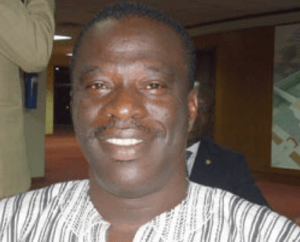Government will not renege on its responsibility to enable Trade Unions to thrive

Mr Ignatius Awuah Baffour, the Minister of Employment and Labour Relations, says the government will not renege on its responsibility to create the enabling environment for Trade Unions to thrive.
He said, “We will explore all avenues to make sure Trade Unions including the Ghana Mineworkers Union are resilient enough to help build the Ghana We Want.”
The Minister was speaking at the 13th Quadrennial Delegates’ Conference of the Ghana Mineworkers Union (GMWU) of the Trade Union Congress (TUC) Ghana.
The event was on the theme: “Building Trade Union Resilience in a Rapidly Changing World of Work: Strategies for 2024 and Beyond.”
He said the government recognized the contribution of the mining sector to the national economy.
“I encourage you to be unwavering and open-minded in your deliberations as discussions of this nature can be sensitive. I expect that discussions would reflect the concerns of delegates as well as meet the objectives of the conference,” he said.
He said the timing and relevance of the delegates’ conference could not be overemphasized as it affirmed conversations around the future of the global labour market.
He said without any doubt, the concept of work has evolved from a philosophical, sociological, historical, and juridical perspective.
He said across the globe countries were at different levels of development with different capacities to navigate the future of work.
“While certain countries are at the forefront of innovation and technology, others are also trying to catch up,” he said.
He said this represented the precarious situation of Africa and catching up to the technological standards entailed investments in all dimensions.
“Considering where we find ourselves as a country and the modest successes we have chalked so far as partners, I applaud labour for the diverse roles and immense contributions to Ghana’s transformation,” he added.
He said building the resilience of Trade Unions in a rapidly changing world of work is non-negotiable.
He reiterated that the government would continue to give priority to trade unions, including the Ghana Mineworkers’ Union to contribute their quota towards national development.
The Minister said the mining sector was a multi-billion-dollar sector that employed many people along the value chain.
He said, therefore, challenges such as poor working conditions, exploitation and abuse of workers’ rights, including freedom of association and unfair termination of contracts of employment, did not help to build the resilience of workers and Trade Unions.
“Rather, they tend to limit the full realisation of the potential of the sector, and we must take advantage of the sector’s prospects to transform the economy and improve the livelihoods of the communities,” he said.
He said in as much as “we are committed to building Trade Union resilience; we should also draw inspiration from best practices.”
Abdul-Moomin Gbana, General Secretary Of GMWU, said in today’s rapidly changing world of work, technological transformation was also revolutionizing the way businesses operate, impacting every aspect of the workplace.
He said from cloud computing to artificial intelligence, companies were leveraging a range of digital tools and technologies to improve their processes, enhance customer experiences, and drive growth.
The General Secretary said research at the University of Oxford predicted that 47 per cent of current job forms be at risk of being automated in 20 years and sub-Saharan Africa, estimates showed that between 40 and 60 per cent of jobs could be affected by Artificial Intelligence (AI) in most countries, including Ghana.
He said the introduction of AI, robotics, automation, and digitalization in the mining sector therefore presents a unique set of challenges.
“While these technological tools can enhance safety, optimize operations, and improve resource exploration, they also pose workforce displacement risks, particularly for jobs involving manual labour and routine tasks,” he added.
These technological advancements are reshaping the nature of work, potentially disrupting traditional job roles and employment structures.
He said as technology continued to evolve, they needed to adapt and transform to remain competitive.
He said that an even more crucial question that needed to be asked was, how prepared were “we as a country to deal with the obvious disruptive potential of AI and what are we doing to ensure that AI is integrated into our economy in a manner that is fair and sustainable because it is coming anyway.”
Source: GNA
